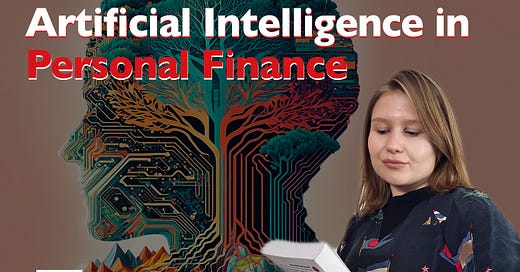How Three EU Companies Implement AI in Personal Finance
Financial inaccuracy is one of the significant reasons clients turn to artificial intelligence apps
With the appearance of artificial intelligence (AI), the world of personal finance and investing is rapidly changing, adapting to the new reality of managing money. ChatGPT, one of the recent breakthroughs in the AI field, can provide information and guidance on various financial topics such as budgeting, saving, investing, and even retirement planning.
Keep reading with a 7-day free trial
Subscribe to 24Hour Journal to keep reading this post and get 7 days of free access to the full post archives.



